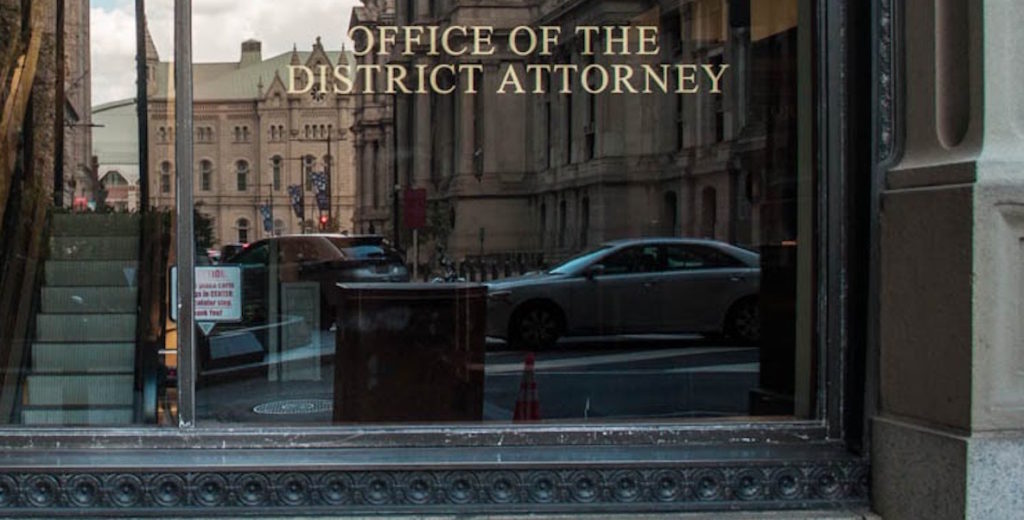Elections, they say, have consequences. So the news that one of the first orders of business for newly elected Philadelphia District Attorney Larry Krasner was to dismiss dozens of employees was something to be expected—anywhere but in Philadelphia. Here, the idea that an incoming elected official cleaned house has created a bit of a controversy.
Krasner campaigned on a platform of bringing major change to the Office of the District Attorney and whether one agrees with his policy worldview or not, it is hard to imagine that any boss or manager could bring major changes to any large operation without making significant personnel moves to ensure that a new organizational vision directs operations.
Some Krasner castoffs include those appointed by his predecessor who served for two terms (less the part where he was sent off to prison) and some were apparently even appointed by his predecessor who served for decades. Heck, when the new Phillies manager was named, one of his first actions was to name a new cadre of coaches to guide his baseball club toward the 2018 World Series victory (please let it be so; we have had too many years of cellar dwelling in this town).
Fire And Fury
Contrary to all appearances, elected officials do change in Philadelphia from time to time, whether from corruption convictions, mortality or good old-fashioned non-incumbent political victories. But while top positions and top deputies may change, the rest of agency personnel may not.
This is much less the case in Harrisburg and in Washington where parties in power shift so Democratic officials replace Republican employee and vice versa, providing a natural way to regularly bring sweeping change. Instead, in one-party-dominated Philadelphia, partisans who get hired tend to stay hired from administration to administration and remain on the payroll for generations.
I applaud the new DA for his actions. I also recommend that we hold current and future officials feet to the fire when running to ask about plans to retain or dismiss staff so we can judge for ourselves whether the candidates are just talking about change or are committed to making that change.
I am not even talking about the make-work positions and sinecures that pols have a tendency to create for their political friends (but these, too, have a tendency of turning into lifetime jobs despite changes in administrations). The at-will employees retain old loyalties and biases, often resist new ways of thinking and create a drag on government operations. Because they are not replaced when new elected officials bring on their own loyalists, the number of usually well-paid senior staffers grows, increasing the cost of government.
What about the expertise and knowledge that would be lost by a regular changing of the guard? That’s what the civil service system is for. A new mayor doesn’t have to have his team figure out how to collect trash on day one because career employees are in place to make sure the day-to-day operations of government run smoothly even in a transition to a new top boss. The new politically-appointed top management then gets to set any new direction for operations.
Fire Walk With Me
When I was a politically appointed official in the Philadelphia government, I subscribed to the seemingly bizarre and chivalrous notion that when my boss left office, I owed it to the loyalists of the new boss to leave so that my position could be filled by the incoming elected official. I would not have thought of asking to stay on or demanding to retain my position, but so many do so and more. Some try “burrowing” by having their politically appointed position transformed into a permanent part of the civil service, some try to convince the new boss that they are simply indispensable, and some try to find political friends to ask the new boss to preserve their job as a political favor.
Fire When Ready
While the election of a new official should bring with it green shoots representing the rebirth of a new spring, the fact that so many political employees grow roots and dig in deep prevents natural transformation and healthy growth in our municipal garden. Renewal is required for that growth and the absence of renewal is not the sign of a well-functioning organization that is capable of evolution and progress. Turnover, separation, and new blood bring new perspectives and are good for the management and oversight of city agencies. Bloating, and calcification, and stagnation stall progress and are bad for city agencies.
Brett Mandel is former executive director of Philadelphia Forward, a nonprofit that encourages civic engagement and advocates for smarter uses of public money. He ran for City Controller in 2013.

